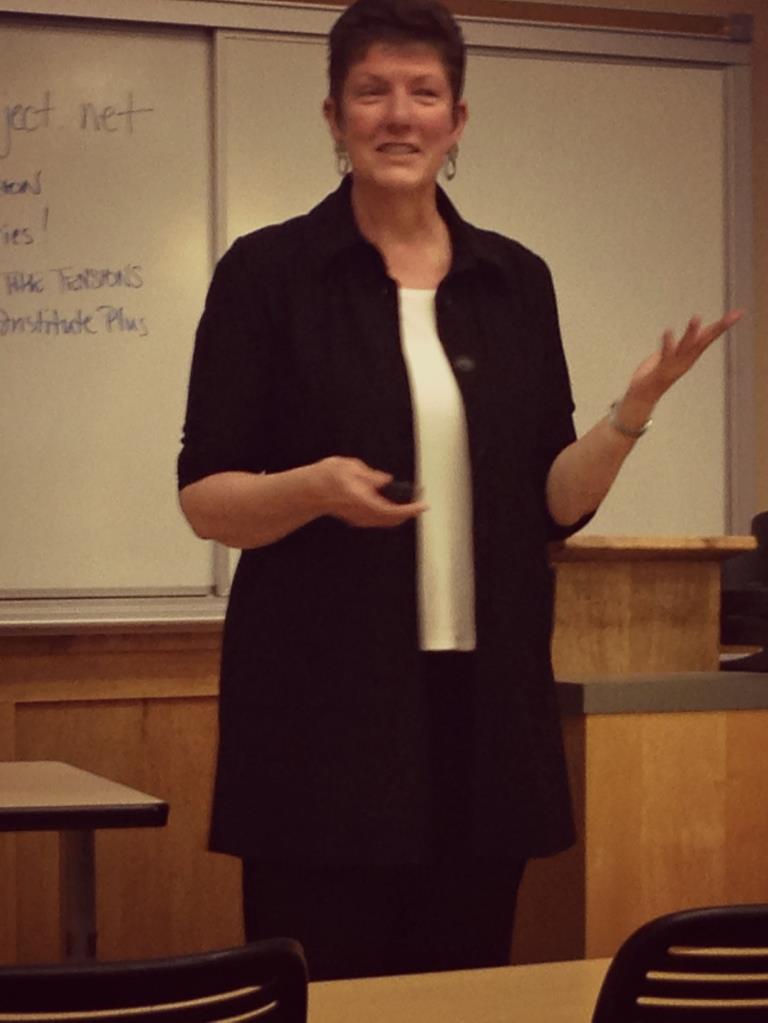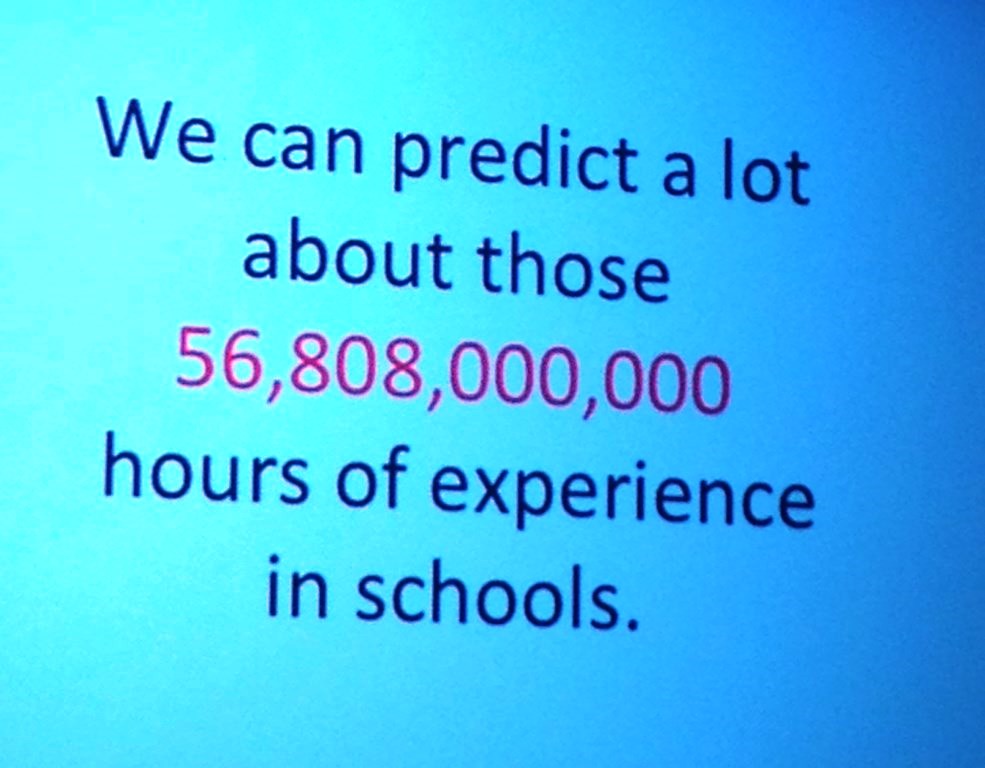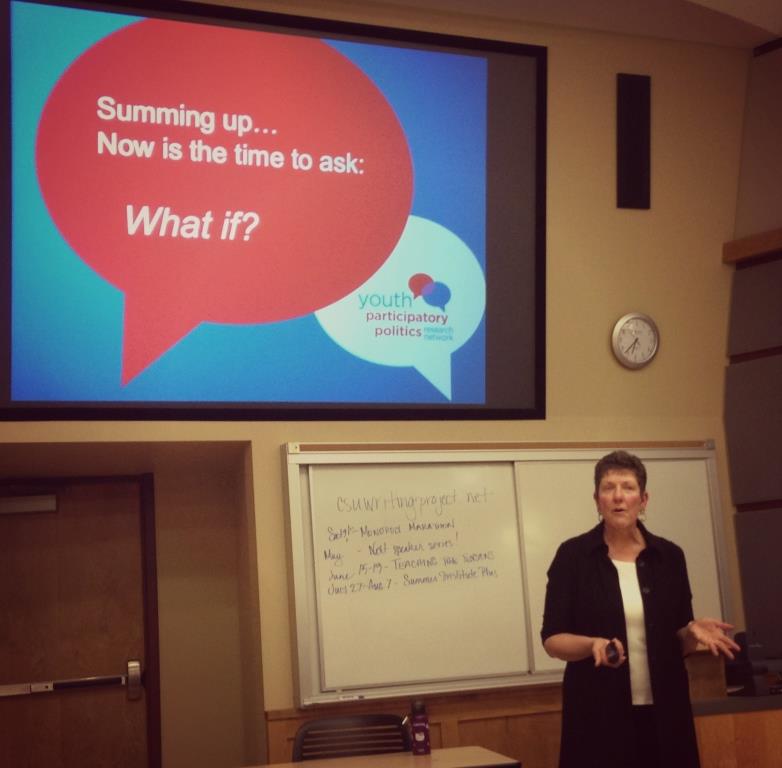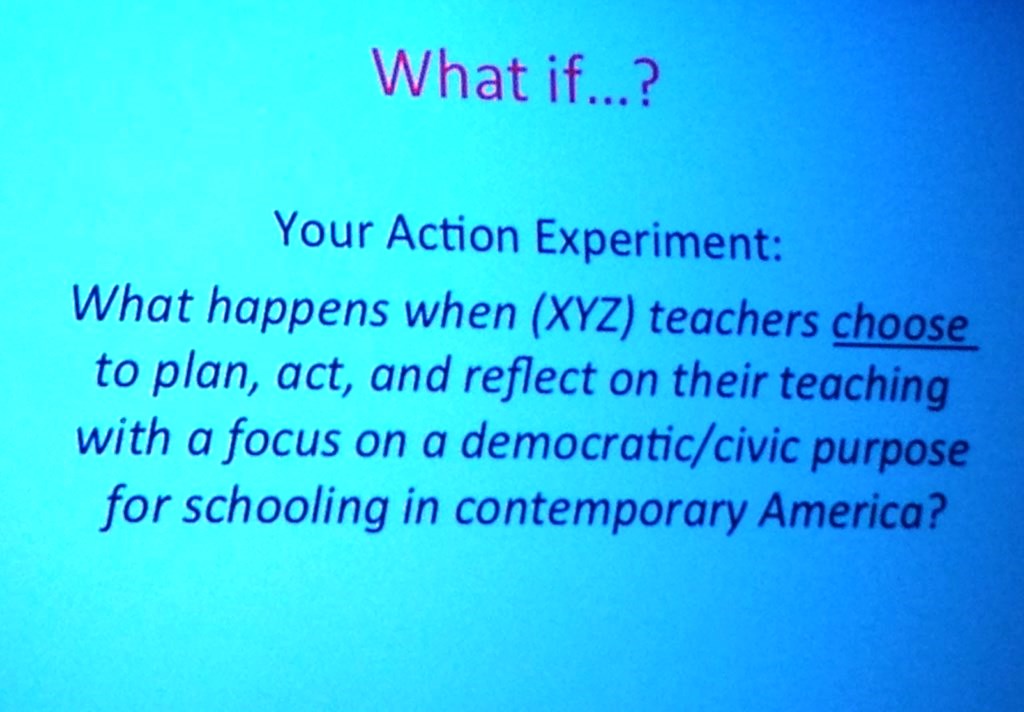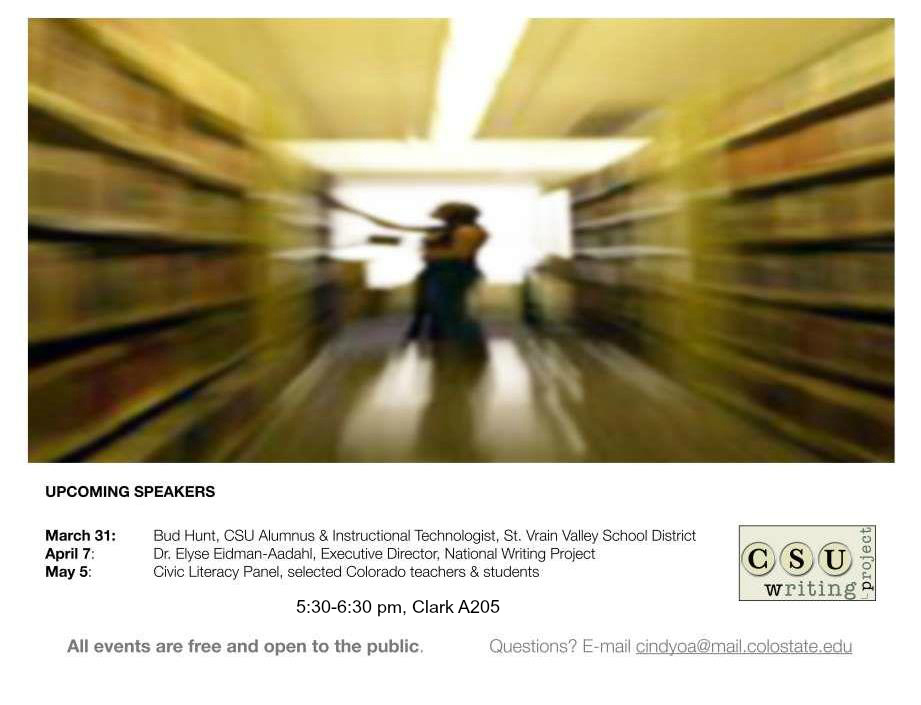On April 7th, Dr. Elyse Eidman-Aadahl was the featured speaker at the most recent session of the CSU Writing Project Speaker Series on the Literacies of Contemporary Civic Life. The National Writing Project Executive Director gave a talk titled “Education for Democracy in a Digital Age: A New Civic Agenda for Schools.” English Department Communications Intern Marina Miller attended this session of the Speaker Series and has this to share:
Coming into last week’s speaker series, I had heard a lot about the guest of honor. In the previous event she was described as a “true genius” and someone who knows “a lot about everything.” All I knew so far was that she was the Director of the National Writing Project, which is the group responsible for hosting these events. I had a feeling that she was kind of a big deal.
After her introduction, she told the audience that she was really just trying to be “a cool old lady” and that for tonight’s presentation she would be “throwing out some ideas.” She started by putting a complicated math problem on her slides. As soon as I saw it, I thought to myself, “Oh no, see I’m an English major. I don’t do such math problems.” After a couple of audience members gave their own responses to the answer of the problem and what the point of this example might be, Eidman-Aadahl told us that the problem represented the number of hours teachers spend engaging in the public school system: 56 billion.
She asked the group “What are we getting out of our schools?” We tend to measure the success of a school based on student achievement, but what Eidman-Aadahl believes is a better measurement is how much democratic achievement comes from our schools. “Are our schools actually giving us a better democracy?”
“Because argument is now being seen as writing, students around the nation are being asked to write about public policy,” Eidman-Aadahl stated. She handed out writing samples from anonymous students from state assessments who after they read a series of articles about the issues were asked to write about whether or not prisoners should be allowed to donate organs. This example was used to talk about the different perspectives that students bring to the table and how their experiences outside the classroom should factor in to our views of student achievement.
Dr. Eidman-Aadahl then described the concept of education as “possessive individualism.” She said that we are teaching students skills instead of teaching them to ask about their place in their communities. She pointed out that on most standardized tests, students are told to take a stand and defend it, but that doesn’t leave them any room to be unsure. In these standardized tests, there is no room for ambiguity.
She continued her talk by giving examples of how students have become involved in politics. Some are starting fan groups that advocate for certain issues, they are posting things on social media, and overall participating more in the democratic process than tends to be perceived. She ended with an idea that she learned in Mongolia; that school shouldn’t just teach skills to prepare for a job, but prepare students to be a part of the community and the collective democracy.
As I reflected on my time in the public school system, as these talks often make me do, I realized that we are taught to regurgitate certain facts and lay them out in a specific format, but that does not teach us how to think critically about the issues that our worlds might be facing. It was not until I took a high school government class that I really started to wonder how I might be affected by certain political issues and how I could make sure that my voice got heard. Maybe we need to talk about these things at a younger age so that by the time we can vote and can make a difference, we feel important; we feel like we have agency. If knowledge about our system of government was as commonplace as a five paragraph essay, maybe we would view student achievement, and democratic achievement a little bit differently.
The session was recorded, so even if you had to miss it, you can watch it here.
More about this series: Throughout the spring semester we’ve been hosting nationally recognized literacies-based researchers and educators to discuss how literacy and youth civic participation intersect from varying, interdisciplinary perspectives. The speakers have presented their work and engaged in dialogue from 5:30-6:30, followed by a brief reception. These events are free and open to the public. All of the speakers present at the CSU campus in Clark A 205.
Up next: The final session in the series is Tuesday, May 5th. This session will be a Civic Literacy Panel made up of Colorado teachers and students.
